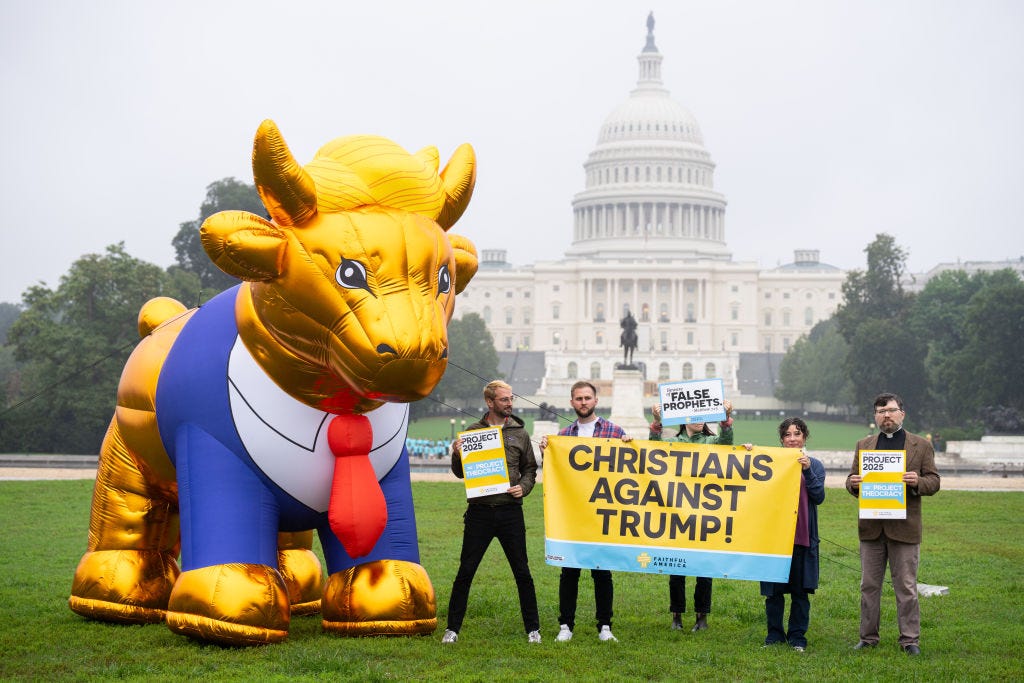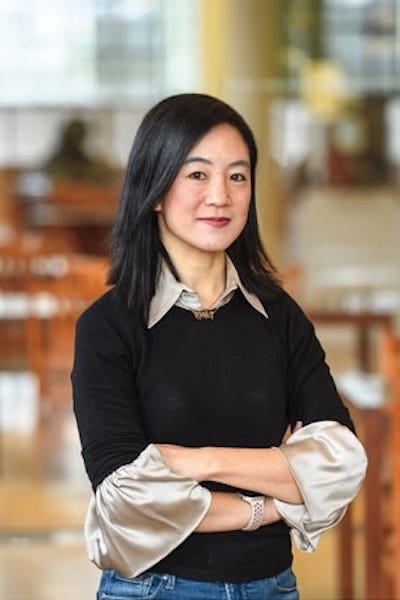Radical grace and the fight for racial justice
Political scientist Hahrie Han on the tension between changing people and changing systems, and the messy, uncomfortable work of driving social progress
In 2016, Ohio voted by an eight-point margin to send Donald Trump to the White House. And in a pattern that became familiar during the 2024 elections but was a surprise then, that same year, residents of Cincinnati overwhelmingly backed a ballot measure that appeared to be the antithesis of the Trump campaign: a universal preschool tax that would largely benefit low-income Black families. Hahrie Han, a political scientist at Johns Hopkins University who studies social movements and collective action, went to Cincinnati to figure out how these two votes managed to coexist on so many Ohioans’ ballots.
Once she got there, Han kept hearing about a church that sent volunteers to organize for the Cincinnati initiative. “The more I dug into it,” Han recalled, “I learned that it was not just five volunteers — it was hundreds of volunteers. They were Black and they were white and they were much younger than the typical profile of people who volunteer for such campaigns. And they came from this Protestant evangelical megachurch.”
That church turned out to be Crossroads, a majority white congregation that, perhaps unexpectedly, is also the birthplace of an innovative racial justice program called Undivided.
Han ended up spending seven years learning about Undivided and following some of its participants, an exploration she chronicles in her new book, Undivided: The Quest for Racial Solidarity in an American Church. We spoke with Han about the convergence of Americans’ political and faith identities, how individual change and structural change can be complementary and in tension at the same time, and what this largely white evangelical megachurch might teach us about the fight for racial justice and the messy, uncomfortable work of driving meaningful social progress.
Listen to the full audio of Adam M. Lowenstein’s conversation with Hahrie Han below:
We hope The Ink will be essential to the thinking and reimagining and reckoning and doing that all lie ahead. We want to thank you for being a part of what we are and what we do, and we promise you that this community is going to find every way possible to be there for you in the times that lie ahead and be there for this country and for what it can be still.
You write early in the book that at first Undivided sounded to you “a lot like the DEI training programs that pervaded corporate America.” Can you give an overview of how Undivided is different?
People kept describing [Undivided] to me, and I thought, This sounds just like the DEI programs throughout corporate America that years of research have shown are not really that effective. A lot of these programs emerged in the 1970s as a response to the civil rights movement. Legal requirements around equal employment and other things like that were being instituted. Those things got merged. What ended up happening is that a lot of corporate DEI programs have a very legalistic tone to them.
For example, the one that I’m required to take at Johns Hopkins every year teaches me about things like implicit racism and empathy and structural inequity — things that are not dissimilar to what the Undivided curriculum does. But then it tells me what actions I need to take to avoid legal repercussions. It’s not something that invites me to think about, if I really take implicit racism or structural inequality seriously, then what does that mean for how I must behave or how I might want to change my actions or rethink the way that I orient myself to the world? Instead, it scripts a set of reactions that I have to take to avoid any kind of legal backlash.
Undivided did something very different. Instead of formulaically scripting the responses that people had, it taught them about these concepts and then invited them to try different ways of interacting and reacting to people who are of a different race than them.
Undivided made a really deliberate decision to organize all the participants into small groups. Each of those groups were mixed race so that white people had to figure out how to navigate these “new” questions about race with people of color, and people of color had to do the same with white people. Instead of scripting people’s reactions, it invited people to think, “Now that you learned this lesson on empathy, how might you react differently in different kinds of situations?”
That sounds like a subtle change, but I think it made a big difference. It allowed people to try new things, make mistakes, and try again. It allowed people to engage in a kind of risk. When they were able to find solutions that seemed to work, they could own the results of change.
You describe a “confounding relationship” between Undivided and Crossroads, the church where the program started. There [are] a lot of tensions, not just between the program and the church itself, but a lot of sub-tensions that the participants [and] the leaders of the program are navigating on their own in this space, which are in turn a microcosm of the broader tensions we find ourselves in, in America.







